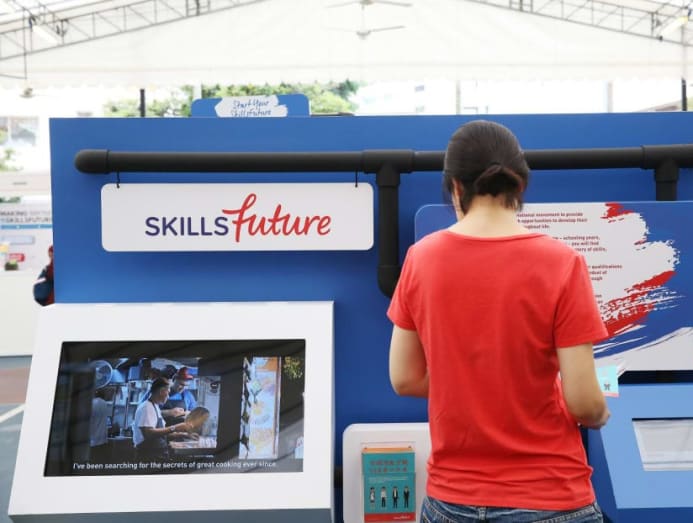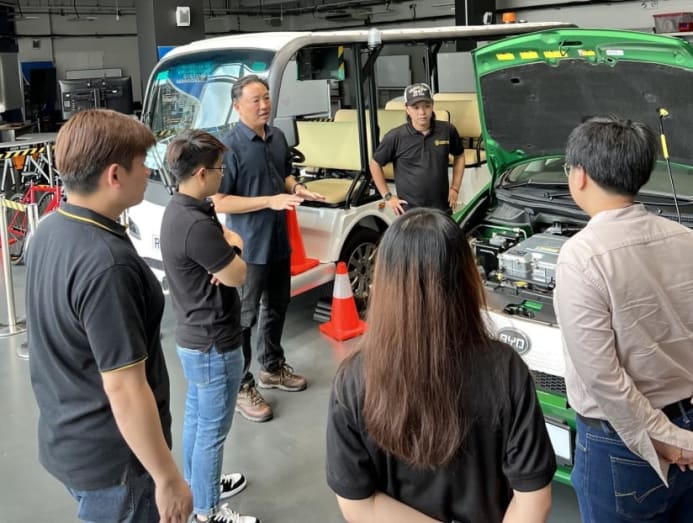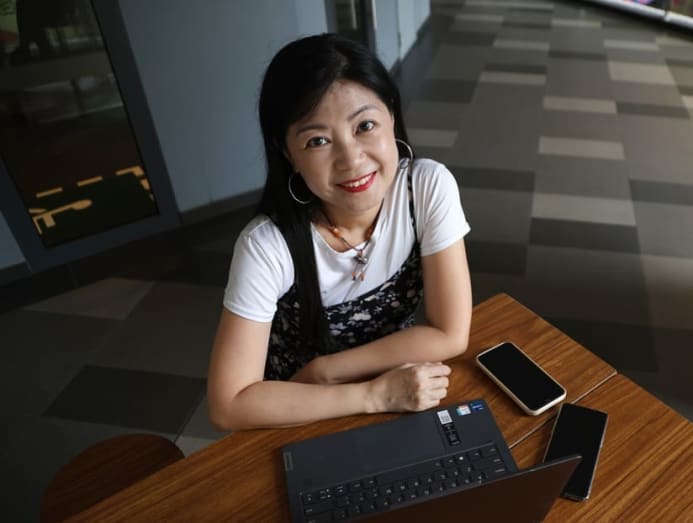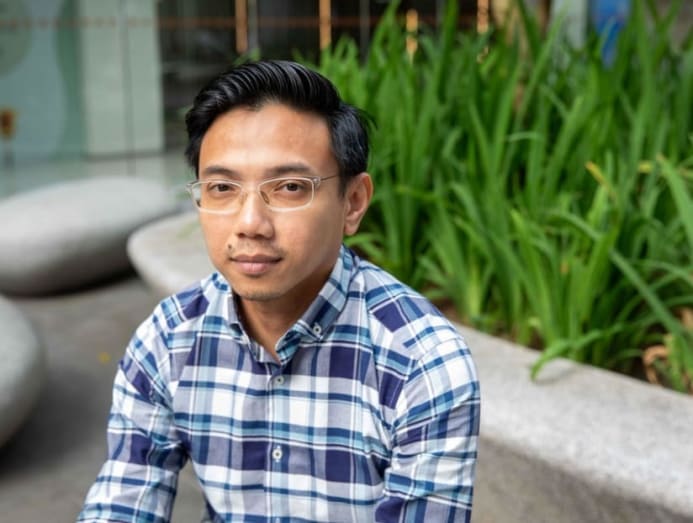The Big Read: Generous SkillsFuture carrot for Singaporeans to get serious about lifelong learning, but will they bite?

(Illustration: TODAY/Samuel Woo)

This audio is generated by an AI tool.
- The SkillsFuture initiative was launched in 2015 to promote lifelong learning and encourage people to learn new skills
- Training participation rate has improved from 35 per cent to 50 per cent, with Singaporeans taking courses as diverse as flower arrangement, folk dancing and people management
- On Feb 16, Deputy Prime Minister Lawrence Wong announced new moves seen to be aimed at taking SkillsFuture to the next level
- The measures seek to nudge workers to take SkillsFuture programmes that are more closely related to work skills and lead to better employability outcomes
- Workers, businesses and human resource experts whom TODAY spoke to speak of challenges in tapping SkillsFuture courses and skills training, and suggest ways to improve
SINGAPORE: Whenever her air-conditioning unit broke down, Dr Chua Yen Ping used to wonder what needed to be fixed when the repair man could solve her woes in just minutes.
So the 48-year-old mathematics lecturer at a polytechnic decided to spend her SkillsFuture credits on a three-month course on air-conditioner maintenance.
While she is still unable to repair her air-conditioner - the course was “too technical” with little hands-on experience - Dr Chua said it started her journey in 2021 to learn different skills such as electrical repairing.
“Recently I applied for a course to learn about artificial intelligence (AI). But I’ve also spent money on courses that are not deductible (through SkillsFuture) like a course to learn Italian.”
With about S$100 (US$74) in SkillsFuture credits left, she plans to spend it on learning about car maintenance.
But when asked if she would spend the credits on skills related to her job, Dr Chua hesitated.
“There are a lot of resources available online for educators from a variety of sources worldwide,” she told TODAY.
“It’s something I do daily too and am more involved in … I would rather use my SkillsFuture credits on other things.
“But with the new initiative (announced during the) Budget, where we get more credits to spend on more specific courses, it could be interesting. I might have a look at the courses available once there’s more information and see if any are relevant to me … maybe something related to AI.”

To promote lifelong learning and increase the employability of people amid a fast-changing world grappling with technological disruptions, the government started the SkillsFuture initiative in 2015.
About 35 per cent of Singaporeans took part in training programmes in SkillsFuture’s inaugural year.
In 2022, training participation rates improved to about 50 per cent, said Minister of State for Education Gan Siow Huang in response to a parliamentary question on Jan 10 this year.
About 560,000 people took part in initiatives supported by SkillsFuture Singapore (SSG) in 2022, including 192,000 who used their SkillsFuture credits. This is an annual increase of around 12,000 per year, from 156,000 in 2019.
SSG is the government agency under the Ministry of Education that is driving the national movement to promote a culture of lifelong learning.
Then-Education Minister Ong Ye Kung said in 2020 that more than 90 per cent of the SkillsFuture claims made by Singaporeans for training courses are work-related, and the government should not deny people the resources to take charge of their careers because of the "small minority" who don't.
He added that several courses, like flower arrangement and baking, may be perceived as leisure-related but they are a profession for some.
After nine years of the SkillsFuture initiative, which has seen Singaporeans taking courses as diverse as pet care and folk dancing, Deputy Prime Minister Lawrence Wong recently announced new initiatives that are seen to be aimed at taking SkillsFuture to the next level.
In his Budget 2024 speech on Feb 16, Mr Wong, who is also the Finance Minister, unveiled moves to encourage mid-career workers to take up SkillsFuture training programmes that are more closely related to work skills.
This includes giving all Singaporeans aged 40 and above a S$4,000 top-up in SkillsFuture credits in May.
These new credits, unlike the basic S$500 credits that Singaporeans receive when they turn 25 years old, will be more targeted in scope.
"We will confine its usage to selected training programmes with better employability outcomes," said Mr Wong, who is also Finance Minister.
Singaporeans aged 25 and older received S$500 in credits from 2016.
In 2020, the government gave these citizens a one-off S$500 top-up, which expires at the end of 2025.
With technological advancements and shorter lifespan of skills, human resource (HR) experts said it has become increasingly important for mid-career workers to be able to take reskilling courses that are effective.
“It's not just about staying relevant. It's about seizing opportunities that were (once) inaccessible and enabling workers to be updated with the latest technology know-how to maintain their employability,” said Mr Gavin Teo, director at recruitment firm Michael Page Singapore.
Mid-career workers in their late 30s and 40s told TODAY that taking on these courses comes at some cost - be it their personal or work time - and they are more interested in taking courses of their own interests.
Tangible results from courses are not always obvious, said owners of small- and medium-sized enterprises (SMEs), especially for courses on soft skills.
And with over 29,000 courses available under the SkillsFuture scheme, individuals and SMEs said they have problems figuring out what courses would best suit their needs.
TODAY looks at the challenges ahead for Singapore as the nation’s focus on lifelong learning shifts towards developing job-related skills that will help employees stay relevant in an ever-changing workplace.

QUANTITY APLENTY, BUT WITHER QUALITY?
Dr Chua’s air-conditioner maintenance course was a “disappointment”, where she was given stacks of lecture notes to learn about the inner workings of an air-conditioning unit during the three-month programme.
Rather than learning the hard skills to maintain an air-conditioning unit, she only took away the knowledge of its different parts. While this has helped her identify problems with her air-conditioning unit at times, she had expected more hands-on experience during the course.
Another handyman course on electrical repairs she took taught her how to repair only one electrical equipment - her oven - as the day-course involved her bringing her own electronic equipment for repairs.
While she said it was a fun and fruitful experience, the skill’s application was limited.
Ms Dawn Lim, 29, co-founder and chief executive officer of customer experience consultancy Alnico, also felt the tangible benefits were not obvious after sending some of her employees for several reskilling courses in 2021.
Through the SkillsFuture Queen Bee initiative - where industry leaders reskill SMEs in the similar industry by identifying the skills required - three of her employees were assigned to two or three short courses such as design thinking and on effective coaching for workplace trainers.
However, this did not result in a significant improvement in the quality of the work done by her employees, said Ms Lim. This was based on satisfaction surveys with her company's clients.
“I feel it’s a bit of a stretch for employees to retrain and comprehend these skills effectively, and what more apply, when they learn these through short courses that are only three days long at most.”
The quality and nature of courses available through SkillsFuture has been questioned several times.
On Thursday (Feb 22), SSG and the National Environment Agency released a statement defending a S$580 course on toilet cleaning listed on the SkillsFuture learning portal that had garnered flak online.
The agencies said that the course is important to ensure cleaning industry workers are efficient and effective at what they do.
"Through practical training, participants will learn effective cleaning methods, the proper use of cleaning agents, and adherence to safety protocols,” they said in a joint statement in response to TODAY’s queries.
The course is also a requirement for licensed cleaning businesses, and is applicable to job levels under the Cleaning Progressive Wage Model, which allows cleaners to earn higher wages as they undergo more training.

Several bogus claims and scams related to SkillsFuture have also occurred over the years.
The largest fraud case involved a syndicate which registered nine dormant entities and made 8,391 claims to SSG in 2017, resulting in nearly S$40 million of training grants being disbursed to the entities.
These submissions involved 25,141 employees purportedly working for six applicant entities, who had purportedly attended training courses conducted by three training providers.
Separately, in the same year, about 4,400 individuals made false claims to encash their SkillsFuture credits by claiming to attend courses which they did not.
In response, SSG said in 2017 that it had implemented “mystery shopping audits” to catch unethical and misleading marketing practices, strengthened the sensitivity of its data analytics system to detect anomalies, and stepped up the frequency of checks and audits on training providers and individual claims.
To address the quality of courses, SSG also implemented the Training Quality and Outcomes Measurement in July 2018, where it surveys course participants on the course quality and its impact on work and career. Participation in the survey is “strongly encouraged” but not required.
TAKING SKILLSFUTURE TO THE NEXT LEVEL
As the job market rapidly changes, the need for mid-career workers to reskill and upskill has become more crucial than ever, HR experts told TODAY.
“As the global skill landscape evolves, individuals, corporations and governments must adapt swiftly to ensure that we can deliver to future needs,” said Ms Dolon Mitra, director of human resource transformation at consultancy Change Et Al.
Singapore is on the right track, she said, as the 50 per cent utilisation of SkillsFuture credits is “a very impressive turnaround for a programme of this size, nature and complexity”.
Mr Teo added: “The challenge isn't just about finding time. It's also about creating courses that resonate with the diverse needs and interests of mid-career adults, ensuring they see the value in investing their time and effort into learning anew.”
Second Minister for Finance and National Development Indranee Rajah told news radio station CNA938 on Feb 19 that the SkillsFuture boost announced in Mr Wong’s Budget speech will focus on growth areas.
“Digitalisation, sustainability, these are key growth areas. And then of course you have our usual ones, electronics and manufacturing ... Basically, anything where there's growth, we encourage people to pursue,” she said.
Senior director of executive search firm Ethos BeathChapman Jenny Su said: “In today's fast-paced world, the skills we impart in courses must resonate deeply with the pulse of our industries.
“Everything's going digital, AI and Generative AI is becoming a household name, and sustainability isn't just a buzzword anymore - it's a way of life.”
She added that it is crucial these courses are not treated like checkboxes to be ticked, but rather as a means of developing skills that workers can use to adapt to the ever-changing work landscape.
“When we talk about (upgrading skills) and reskilling, we're talking about empowering individuals to not just keep up, but to lead,” she said.
“If we don't uphold quality standards (of the courses), we risk undermining candidates’ trust and potentially hindering their career growth,” said Ms Su, adding that quality checks should be made consistently to ensure the effectiveness of courses.
Dr Charles Ong, dean and director of health and life sciences at private educational institution PSB Academy, said that technological advancements and industry shifts would mean shifts in educational trends.
These include a growing focus on critical thinking, creativity, problem-solving and transferable skills like leadership and communication.
Courses on digitalisation, which drives business growth and efficiency, and those which focus on specialised skills, such as data analytics, artificial intelligence and cybersecurity, will also be in greater demand.

CHALLENGES IN RESKILLING MID-CAREER WORKERS
While mother-of-one Irene Yeo was browsing the SkillsFuture portal to look for a short course, she found the number of courses available overwhelming.
“It’s just so much information. You don’t know which courses would suit you, and you still need to click on the courses’ webpage to find out more information,” she recalled of her exasperated attempt to find a course last year.
To spare herself from a headache, she simply closed the website.
Her SkillsFuture credits have also remained untouched as she has little time to take a longer course.
“When I get home, I need to take care of the family and by then I just need to rest,” said Ms Yeo, 44, an after-sales manager. “I just don’t have time to do anything.”
She took up a part-time degree from 2004 to 2007. While she did not have family commitments then, juggling her work and studies was “very stressful” - although she did have an understanding employer who helped her by providing leave for her examinations.
“Now with a child and more life commitments, I don’t think I can find the energy to do any long courses anymore,” she admitted.
While there is growing acceptance of the need for lifelong learning, several challenges - such as lack of time, support and inertia - need to be addressed to ensure that more mid-career workers take up skill upgrading workshops, said HR experts.
“For many, upskilling may be essential, but it may not be perceived as urgent,” Ms Mitra said.
Chief executive officer of the Singapore Institute of Management Academy Ho Seong Kim noted that mid-career workers often have “demanding work schedules and personal commitments, making it difficult to find them to attend courses or engage in learning activities”.
“Learning new skills can be intimidating too, for those who have been in the workforce for a long time and have established routines or expertise in their current roles.”
For SMEs, workers taking courses also comes with an opportunity cost - be it spending money on the courses or having to work with a temporary shortage in manpower.
Mr Ang Yuit, president of the Association for Small and Medium Enterprises (ASME), said: “There’s such a wide variety of courses, so SMEs have a challenge when it comes to decision making.
“For example, you wish to send a staff for a course and search for one. There’s so much information, it’s hard to tell if a course fits your company’s needs. After reading for 20, 30 minutes, you have no idea and just give up as you have work to clear. Sending employees on such workshops just goes into the backburner.”
And as SMEs are smaller and may have fewer resources than multinational corporations, Mr Ang noted that some companies may face manpower struggles when employees go for courses that last longer than a day.
Mr Jarieul Wong, co-founder and communications director of public relations agency IN.Deed Communications, added that some companies have limited budgets - which means some workers may not have the opportunity to take part in a course.
Ms Lim of Alnico also pointed out that SMEs may not be able to translate courses into tangible benefits for the company. Hence, they might be more hesitant to send their employees on courses.
She added that some employees may not want to attend courses as they have work deadlines that have to be adjusted due to the courses taking up work time.
However, some SMEs are viewing reskilling opportunities as a necessity to retain their employees - and rid them of the feeling of “stagnation” within the company.
“Our new employees come in and they always say the same thing - they want to learn,” said Mr Adam Piperdy, chief experience officer and founder at event production house Unearthed Productions.
“But at an SME, there will come a time where there is not much employees can learn from their bosses.”
His company allows employees to take a course every quarter. These courses are not necessarily related to their job scope, and employees can choose from the ones proposed during a monthly town hall, or by seeking approval from HR to attend courses they find themselves.
“Our employees can broaden their spectrum, bring different skills to the table,” he said on the benefits of allowing his employees to take courses regularly.
CATERING TO MATURE STUDENTS’ NEEDS
Given these challenges, educational institutions providing reskilling courses for mid-career workers under the SkillsFuture framework have adjusted their courses to fit the needs of their mature students.
Mr Wong Jian Chang, director of Singapore Polytechnic’s (SP) Professional & Adult Continuing Education Academy, said it has developed more asynchronous lessons, allowing learners to learn “anytime and anywhere”.
“While this is important, we augment them with face-to-face sessions so that learners can continue to interact, build networks, and have hands-on learning,” he said.
“For greater clarity and assurance of competencies gained, both to the learners and to companies looking out for skills, SP has started to develop and launch micro-credentials with leading industry or professional bodies to define industry-relevant competencies and develop accreditation methods.”
The polytechnic also has workplace learning programmes, which allow companies to make learning more effective. This includes “developing workplace learning blueprints, coaching workplace trainers and helping with job redesign”, allowing workers to work and learn at the same time.
To address concerns related to tangible benefits from the courses, Republic Polytechnic’s (RP) programmes include project elements in the curriculum. This allows mid-career workers to “build their portfolio in a new area by completing a real-life project”, said Mr Sim Choon Hou, director of RP’s Academy for Continuing Education.
“RP has also seen tremendous growth in our training-cum-project-consultancy model, where participants will bring to the table a problem that they want to solve after attending a course and our lecturers will work as a trainer-cum-consultant to them.”
Through this, the lecturer ensures the project can be completed by the end of the training period - motivating the mid-career worker through “small wins” and allowing companies to see the return on investment through the project implementation.

Mr Sim added that mid-career workers also have access to the school’s education and career guidance services, where they can seek professional support from counsellors. This includes “sharing insights of emerging and growth industries that can support the aspirations of mid-career workers”.
Despite such bespoke courses, can more be done to encourage more employees, and their employers, to go on board the SkillsFuture train?
Mr Ho of the Singapore Institute of Management Academy said the Government could provide businesses with more resources they can invest in reskilling their employees. This could help alleviate some concerns such as cost.
In 2020, Finance Minister Lawrence Wong launched the SkillsFuture Enterprise Credit to allow businesses to defray up to 90 per cent of out-of-pocket expenses of business transformation, job redesign and skills training.
Eligible employers can claim the S$10,000 credit by Jun 30, 2025, after Mr Wong announced a one-year extension in his Budget 2024 speech.
Creating recognition programmes for mid-career workers who have taken reskilling courses could also help motivate individuals, suggested Ms Mitra of Change Et Al.
But beyond that, businesses could also take their own initiative to assess what courses fit their employees best, said Ms Su of Ethos BeathChapman. This includes:
- Conducting assessments before and after the course to measure employee’s knowledge and skills
- Defining clear performance metrics related to the skills targeted in the courses
- Analysing employee performance, distinguishing between those who have attended the course and those who have not
- Establishing feedback channels for employees to share their thoughts on the courses they attend
But as many companies and mid-career workers value on-the-job training and question the need for courses, Mr Ang of ASME wondered if more could be done to enhance such training in-house.
This could be through incentivising companies to better structure such on-the-job training programmes, so that employees are more aware of the skill sets they need and companies can focus on imparting these necessary skills, he suggested.
There is also a need to enhance awareness of case studies that showcase the benefits for individuals to take on courses related to their careers, said HR experts and trainers.
For private educational institutions, they hope that the S$4,000 additional SkillsFuture credits could be used by mid-career workers to defray the cost of education in their institutions.
Dr Ong of PSB Academy said that private educational institutions will also be “pushed to step up to ensure their programmes align with the government's goals”.
This includes offering training to support career switchers and adjusting teaching methods and entry requirements to suit mature learners.
“Shorter, more focused programmes would work better for mid-career switches compared to the regular diploma courses designed for younger students,” said Dr Ong.
For Ms Cat Ang, a freelance artist and drama instructor, mid-career courses like those provided under SkillsFuture have benefited her a lot.
She took a diploma in people management, which taught her how to work with people better through various skills like communication and customer service. The skills also apply to her daily life as she uses these skills to communicate with her family clearly, she said.
While taking on these courses comes at a cost - she has to sacrifice the time spent with her children and the number of classes she can teach - she said the investment is worth it in the long term.

Most recently, the 49-year-old single mother took up a course on TikTok shop, which teaches people how to sell items on the social media platform.
She completed the course last November and has sold only two items thus far. But Ms Ang remains positive that the course has given her the skill sets to take on a career that provides her with time flexibility to care for her children.
“The time and job opportunity sacrifice is temporary. There’ll be long-term benefits to these courses, and I believe it’ll allow me to have more time to care for my children while working as the sole breadwinner,” she said.
But as many incentives and nudges are given by companies and the government, individuals need to push themselves to take the step and reskill themselves, said experts, schools and business owners.
"Time is a luxury an individual has, it's really up to them to prioritise their time and to say that they are ready to take up the challenge," said Mr Hisham Ong, 40, senior manager in data and analytics for Asean and South Pacific in the Coca-Cola Company.
When he started his role in the company's sustainability department, he found himself exposed to the jargon and endless acronyms related to sustainability reporting.
He had been apprehensive about the rigours of entering formal education while juggling his work life and family life, but Mr Ong said he took a "leap of faith" to study for a graduate diploma in Sustainability at the Singapore University of Social Sciences.

"I believe that choosing to study represents a significant opportunity for me to enhance my professional growth, stay abreast of sustainability trends, and bring more value to my role in the sustainability space," said Mr Ong, who was able to use SkillsFuture credits for three of his six subjects.
"(The graduate diploma) gives you the basic grounding. While on the job, people don't have the luxury of time to explain things."
He may have just started in January, but the classes have already given him a better understanding of what sustainability entails and given him a better appreciation of the job.
"There's a lot of acronyms in sustainability and reporting standards that I've struggled to understand. But after six weeks of the course, I've gained a better understanding," said Mr Ong.
With another eight months ahead for his course, Mr Ong said the twice-weekly night classes are a worthwhile sacrifice of his time.
"It'll help me understand what we do at Coca-Cola, what sustainability is about and gain more appreciation for the job I'm doing," he said.
This article was originally published in TODAY.












